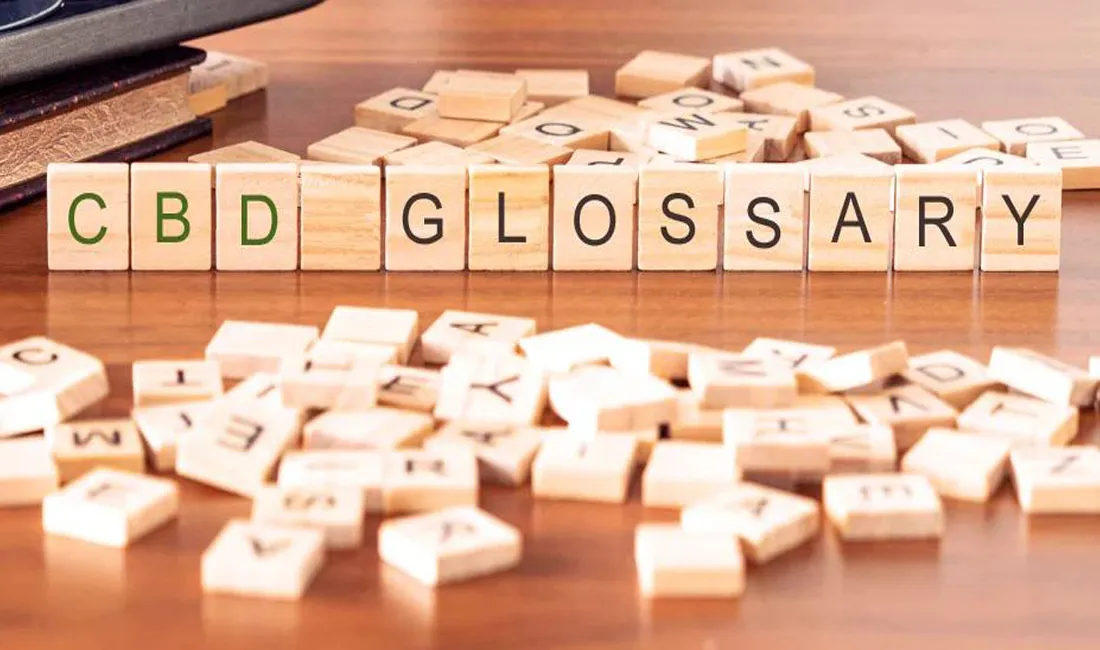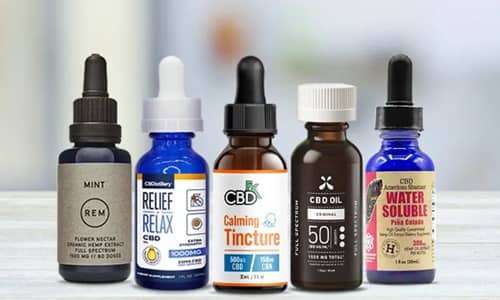If you’re buying a CBD product or other cannabis-related item, you’ll want to know everything about it. This includes some of the terminology and jargon that you may hear associated with it, or may read on the label of the product.
And in order to consider yourself a true CBD expert, you need to know the lingo that goes with it. Luckily, we’ve provided you below with a cannabis glossary that will define some of the most important and used terms in the industry.
Cannabis Glossary
Anandamide
A common endocannabinoid naturally produced by your body.
Bioavailability
Bioavailability refers to the degree and rate in which a drug or other substance is absorbed by your body’s circulatory system. Bioavailability is a vital tool for measuring an accurate dosage for consumers.
Cannabinoids
Naturally-occurring chemical compounds found in cannabis plants. These cannabinoids are responsible for interacting with the endocannabinoid system in your body and providing you with their associated benefits. THC and CBD are the two most studied cannabinoids.
More than 100 cannabinoids have been discovered so far, with CBN (cannabinol) and CBG (cannabigerol) being two compounds with rising popularity.
Cannabis
Also known as the cannabis sativa plant, cannabis refers to all plants that fall under this category.
See also: Hemp and marijuana
CBD
Cannabidiol, also referred to as CBD, is one of the most popular cannabinoids and is the second-most produced compound in cannabis, accounting for up to 40% of its extract.
CBD products are extremely popular among consumers, and are known to provide therapeutic and calming effects. CBD is non-intoxicating, meaning it does not get users high like THC does.
Certificate of Analysis
Also known as COA, a certificate of analysis is a document from a registered laboratory that certifies the amount of cannabinoids within a given product is safe and legal.
Concentrate
The more purified and potent form of cannabis flower. Can be made into waxes, oils, tinctures, and more.
Delivery Method
Refers to the method in which you consume cannabis products, whether THC or CBD-specific. Different delivery methods include:
- Smokables
- Topicals
- Tinctures
- Edibles
Edible
An edible is a cannabis product that you can eat in order to absorb CBD or THC into your body. The effects of edibles typically take longer to become noticeable for the user, but lasts longer than most other delivery methods.
Endocannabinoid
Chemical compounds naturally produced within the body that attach to the same brain receptors as cannabis compounds like THC and CBD.
Endocannabinoid System (ECS)
The endocannabinoid system (ECS) is your homeostatic regulatory system found in your body. This is found in all mammals, and is designed to maintain bodily homeostasis and keeping the body balanced during environmental changes.
Your endocannabinoid system has receptors throughout your body that play a role in your mood, appetite, memory, inflammation, pain management, and more. Cannabinoids attach and interact with these receptors when consumed, which then provides you with the appropriate response.
Entourage Effect
The entourage effect is when several different cannabinoids interact in your endocannabinoid system together to produce a stronger effect. Not much is known about the true effects of this phenomenon, but it is known that the combination of different cannabinoids and terpenes can be more beneficial for the user.
Farm Bill (2018)
The 2018 Farm Bill, also known as the Agriculture Improvement Act of 2018, was legislation signed into law by President Donald Trump that defined hemp as the plant cannabis sativa, making it fully legal to grow and produce byproducts with so long as the THC levels stayed at or below 0.3%.
FDA
The U.S. Food and Drug Administration (FDA) is a regulatory government agency responsible for regulating cannabis and cannabis-originated products.
So far, the FDA has only officially approved of one CBD product for medicinal use. This product is known as Epidiolex and is used to treat rare forms of epilepsy.
Hemp
Hemp is a form of cannabis, closely related to marijuana. It’s primary extract is CBD, and the list of uses for the hemp plant continues to grow.
Hemp Seed Oil
Hemp seed oil is derived from industrial hemp. It is obtained by pressing hemp seeds, and is commonly confused with CBD. Unlike CBD, hemp seed oil does not provide the body with a calming effect.
Industrial Hemp
Industrial hemp refers to any and all hemp that is grown specifically for its industrial uses. This includes CBD products, textiles, clothing, plastics, food, biofuels, and more.
Marijuana
Marijuana is the most popular form of cannabis, and primarily produces THC, the compound responsible for getting the user high.
Marijuana is also known as pot, weed, dope, and grass.
Microdosing
Microdosing is a technique where you consume small amounts of CBD supplements throughout the day. This method can be beneficial because it allows you to maintain a stable level of CBD in your system, and promotes consistent use that provides the best benefits overall.
Potency
Refers to the measure of a drug’s activity that is expressed through the amount needed in order to produce a specific intensity level of effect to the body. Drugs with a higher potency provoke bigger responses with lower doses when compared to low-potency drugs.
Psychoactive
Refers to any property that alters your brain function by interacting with the central nervous system. This results in an altered mood, perception, behavior, and cognition.
THC is considered a psychoactive compound, while CBD is not.
Spectrum
Refers to the type of CBD extract you have. There are three kinds:
- Full spectrum CBD — CBD containing all of the natural phytocannabinoids found in hemp or marijuana.
- Broad spectrum CBD — CBD with added terpenes, flavonoids, and minor cannabinoids. All THC is removed.
- CBD Isolate — Contains only CBD. All other cannabinoids removed.
Strain
A strain refers to specific cannabis plants that are bred for particular characteristics and benefits that they possess. For example, industrial hemp is a strain of regular hemp that is engineered to produce higher levels of CBD and less THC, making it perfect for medicinal products.
Terpenes
Terpenes are aromatic oils that provide flavors such as berry, mint, and pine to certain cannabis strains. Over 100 different terpenes have been identified so far, and every strain of cannabis has its own unique terpene profile.
THC
Tetrahydrocannabinol, or THC, is the chemical compound primarily produced by marijuana. It is known to provide many medicinal benefits, as well as a euphoric high feeling when entering the bloodstream.
Tincture
A tincture is a type of delivery method. Tinctures are typically administered sublingually (placing under your tongue) and are absorbed and distributed throughout the whole body.
Topical
A topical is a type of delivery method. CBD topicals are applied directly to the skin in the form of a lotion, cream, or salve. Topicals are great for targeting specific parts of your body.
Vertical Integration
Vertical integration is a form of business practice where a company controls its own supply chain. By owning the farms where their hemp is grown, along with barns where it’s stored and labs where it’s processed, they can oversee every step of quality control.


